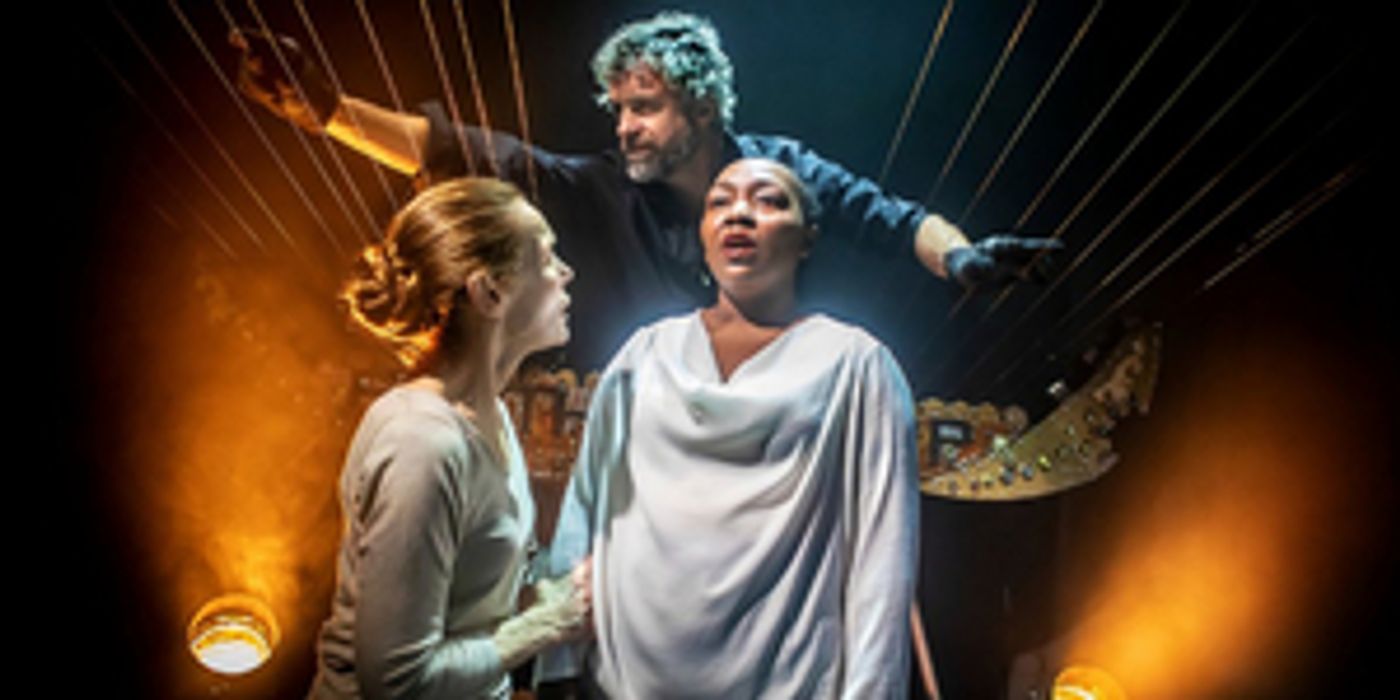Review: PERSONA, Riverside Studios

![]() We walk across the set to reach our seats. Wires run above overhead, trapping us. A bed stands before us and a table. Are we in a hospital? A nursing home? A "secure unit"? There's a sense of unease - and the 90 minutes ahead of us feels daunting.
We walk across the set to reach our seats. Wires run above overhead, trapping us. A bed stands before us and a table. Are we in a hospital? A nursing home? A "secure unit"? There's a sense of unease - and the 90 minutes ahead of us feels daunting.
A man runs his hands over the wires and they start to sing, an unearthly, dissonant sound, like whale song, but with a malevolence underpinning it. It should be relaxing, but it's not, because it's hemming us in, pushing us into the psychodrama to come. It's a feeling that never really leaves us - William Close's Earth Harp an extraordinary presence, part friend, part foe.
Paul Schoolman joins us for a prologue in which he explains both the genesis of Ingmar Bergman's movie and of his adaptation thereof. The trap is sprung - suddenly we're in a lecture theatre with the whiff of Sight and Sound in the air. Nothing quite stops a play or a film like a narrator.
Things improve when the women start to talk - or rather, one woman starts to talk. Alma (Alice Krige - uptight, unpredictable, conspiratorial) is the nurse, Elizabet (Nobuhle Ketelo - silent, attentive, implacable) is the patient, Elizabet, a famous actress, has stopped talking. Becoming a voluntary mute is somewhat limiting her career options, but she seems happy - like it's a plot, a plan with an end she knows will come.
Alma has never been listened to before, so out pours her life story, her anxieties and her terrible secret. She feels some liberation at this confession, but that only heightens an incipient jealousy focused on the actress who has everything, but doesn't seem to want it any more. Like a tide coming in and slowly demolishing a sandcastle, Alma's personality fills the empty space vacated by Elizabet - until the mute finds a way to show that it isn't like that at all.
Theatre is not cinema of course and, though the difference is to be celebrated, moving from one art form to another is tricky. Take this key scene. Sven Nykvist's camera is pushing our eye into the room, into the relationship between the women. Bibi Andersson is acting in close-up and mid-shot, Liv Ullmann's reactions are almost imperceptible, but not quite. In a theatre, we make those decisions about where our eye goes and that brings a certain satisfaction, but also a dilution. On stage, it's still a powerful five minutes, laden with an erotic charge, but one also feels the distance that simply is not there in the cinematic medium.
The film has been analysed endlessly and, in this age of social media, RPGs and identity theft, this theatrical adaptation gives much food for thought too. Densely packed into its hour and a half. It's not difficult nor deliberately obscure, but there's so much going on inside these two women's heads - in fact, in the narrowing space between them - that you find yourself subsequently re-running it in your own head, thinking about the malign effect of IdPol, the cruelty of silence, the atavistic need to confess, the emotions of parenthood, the otherness of women. And much more.
In that sense, Schoolman's adaptation succeeds, but it feels too passive on stage, too flat, too close to its source medium. A coda with horrendous images from the last few years feels a little heavy-handed, foregrounding one element of the women's psychology when there's so much more in play. There's a more rounded version of Persona somewhere - probably, it's the film.
Persona continues at the Riverside Studios until 23 February.
Reader Reviews
Videos

